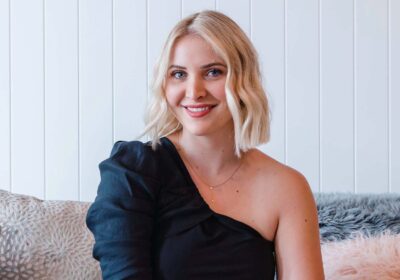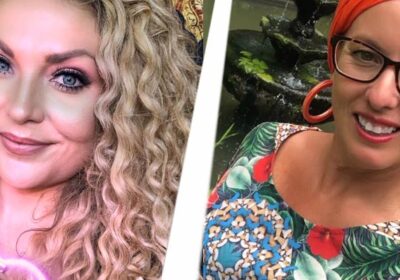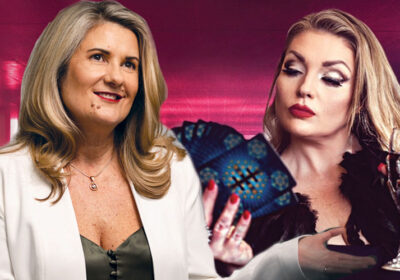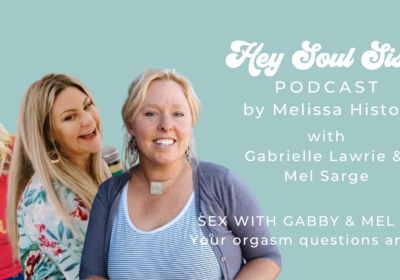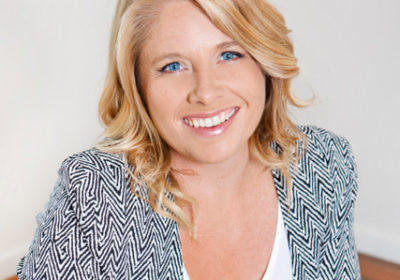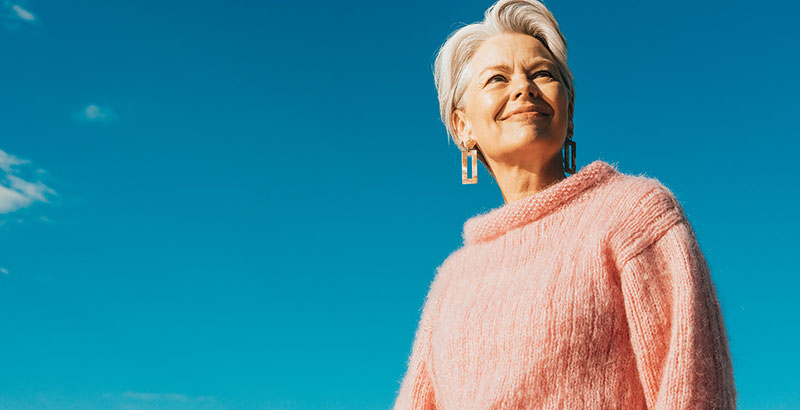
- Stats: 312 2 0
- Author: Melissa Histon
- Posted: 09/02/2021
- Category: Hey Soul Sista Podcast
Finding the calm amongst the chaos
Do you ever experience no energy, recurrent negative thoughts, lack of drive or desire? If so, you may be suffering burnout. It can be extremely daunting to stop external circumstances affecting how we feel – but there’s a way to go back to our own oasis of calmness and insights. In this episode, mindfulness guru, Charlotte Thaarup, discusses with host, Mel Histon, how we can find calm and peaceful moments amongst the chaos.
Mel Histon:
Hey, soul sisters. Guess who I’ve got with me today again? My fabulous, favourite mindfulness guru, Charlotte Thaarup. Hello, how are you?
Charlotte Thaarup: Hi, darling.
Mel Histon: I love having you in the studio with me.
Charlotte Thaarup: Oh, it’s good fun.
Mel Histon: Today we’re actually going to have a chat about finding calm in the chaos, which Charlotte is a total guru and fabulous, wise teacher. We’re in that whole mindfulness and finding calm and peace again. It’s at this time of year it’s crazy. It feels like it, around Christmas and end of year activities and I mean, and it’s been a crazy year.
Charlotte Thaarup: Yeah, with lots of intensity and lots of challenges and also some saying, a bit more calm. I think what people have experienced varies greatly depending, in a way, of your privilege. I think there’s no doubt about that. We’re seeing that even more clearly now.
Mel Histon: For those of you who have been under a rock and don’t know Charlotte, she has made many appearances on Hey Soul Sista podcast, and that’s just because I find her so wise and giving, and she’s my go-to person, if ever I need some guidance or need to talk out an issue, or just need some lovely words of wisdom and reminders on how to live more mindfully in the present moment. So, Charlotte runs The Mindfulness Clinic. She founded The Mindfulness Clinic and helps people to find their own peaceful path to living.
Charlotte Thaarup: Away with less war with the moment and ourselves.
Mel Histon: And you’ve trained with some of the mindfulness masters.
Charlotte Thaarup: Yes.
Charlotte Thaarup: I’ve been very lucky, yes, zen master. So, kind of both arms of Buddhism and I think the more you can, without wanting it, but kind of open yourself up to the different ways, the better it is, really.
That’s what I think. I mean, others would say, you’re deep and deep and deep in one direction. Personally, that’s not mine, but I get it is for some.
Mel Histon: Yeah, and before this crazy COVID year, you actually did travel the world and speak at a lot of conferences and run retreats around the world, on teaching people about mindfulness and mindful leadership.
Charlotte Thaarup: Yeah, because when I first found it, I was so incredibly excited and I started running retreats for psychologists as part of their professional development. In hindsight, I wasn’t at all ready to do that, but you don’t know what you don’t know, right? And I was just so excited. And the thing is that mindfulness is relatively robust. Even if the facilitator isn’t brilliant, people can still get something out of it. Of course, the better the teacher, the deeper and better the teaching.
And I have a dreadful little story to share about where I just noticed how far I’d come this morning because I did have a party last night and I went to bed too late and woke up early, and was really groggy. Stepped out of my bed, and I stepped in something black and sticky. So, I lifted my heel and thought, “Better not get that everywhere.” And I looked and it was actually cat shit.
Mel Histon: Oh no.
Charlotte Thaarup: I know. And I didn’t have any drama feelings. I didn’t have, “Oh no. I can’t believe it. How bad.” Nothing. I just went, “Oh, okay. Is there more of it? We better go and sort it out.” And I thought, that’s freaking zen.
Mel Histon: Yeah, that is zen.
Charlotte Thaarup: And that’s the training, that’s what the training does.
Mel Histon: Yeah. So, when people come to you for their… What’s the word, consultation for their appointments with you, sessions with you, I should say. What are some of the, I suppose, key reasons that people come to see you? Is it stress and anxiety? Because I suppose I see through Got Your Back Sista, that that would be one of the number one things that we see in women that come, they’re dealing with stress and anxiety.
Charlotte Thaarup: Yes, absolutely. Overwhelm, and perhaps there’s been a really bad employer, so there’s trauma sitting and then you’ve got the anxiety and pressure on top of that, or a family split or death, or usually something on top of all the rest that just topples, you know, we do humans. And I think one thing I’d really like to get across is, more and more, I think we have to be really honest about the fact that this is not a personal issue. This is a social issue. I remember the Dalai Lama a couple of times has said, “I don’t understand. Are there people in your culture who don’t like themselves or don’t love themselves?” You know? And so it is a cultural, in the Western world. We have a problem and I think it helps, in a way, because we always think it’s me. I’m not coping. Why am I feeling so anxious? Why am I feeling so overwhelmed? I’m not coping with my life. Whereas when we go, well, actually, that’s how it is for most people in our culture at the moment. So, what’s happening in our culture that is generating that?
Mel Histon: Do you feel as though, or do you believe that it is chaos that’s causing that?
Charlotte Thaarup: Well, I’ve run many retreats for that title of finding calm in the chaos and in a way, there’s always chaos. If I look outside in my garden, I can say, “well, I can’t count the leaves. I can’t control which ones are going to fall off.” And you know, it is chaotic. I think that the thing is, that the world is so much more complex than our little brains can ever comprehend. And our brains are predicting machines. They’re looking for patterns and the crazier the world gets, the more they look for patterns. So in a way, in this chaotic world, we become more and more superstitious. We look at, “Oh, it wasn’t meant to be,” or, “Do you see that?” Or, “That’s me linked to that,” because we need to, because it’s scary being little separate humans in a big world. Right?
Charlotte Thaarup: So I think that the chaos is always there. It’s a question of, are we seeing it as chaos as a threat, like the complexity? Because we can also see it as abundance, right? As wow and kind of in awe and wonder of the world. Are we seeing it from that place? Are we seeing it from the other place? And where’s my locus of control, is the other thing I’d say. In other words, what am I letting control me? Where’s my attention. And if I’m going, “Wow,” the body is anxious. That means I need to just calm it before I do anything else. That means my locus of control is the body. I’m home in the body, versus thinking that I need to sort all this stuff out to not have chaos in order for me to be all right. And that is endless.
Mel Histon: It is endless. And I keep thinking it’s going to end.
Charlotte Thaarup: Yeah, we do. That’s our delusion.
Mel Histon: I keep thinking, if I just get through this time, I will get there and it will be okay. And it never is.
Charlotte Thaarup: No, and that’s that.
Mel Histon: There’s always more.
Charlotte Thaarup: Yes, like weeing the pants. Nice and [well 00:06:49] when you do it and then you have to clean it up. It’s that. Yeah, and that is, I mean, even the Buddha described that delusion 2,600 years ago, thinking that we could get peace from the doing of something. And we can’t. I mean, there is a time to when we complete a task going, “Oh,” but then you sit for a moment and you go, “Oh shit, now the next thing needs doing,” doesn’t it?
Mel Histon: Yeah.
Charlotte Thaarup: Right. So, in that way, it’s not a sustainable way of generating. That’s an inside job. That’s how we had that beautiful saying of, “If you don’t go within you go without.”
Mel Histon: So really, with chaos, we’re feeling like we’re out of control.
Charlotte Thaarup: Yes. That’s right, that’s right. Overwhelmed.
Mel Histon: Overwhelmed and out of control. Yes.
Charlotte Thaarup: And I mean, there were some really interesting little point that somebody made saying that in effect, we are exposed to more information in one day than somebody in the 15th century, so pre industrialization, is exposed to in their whole lifetime. And considering that our brains are predicting machines, that’s just overwhelming. And if we’re then get stressed, it means that our subcortical area that’s formed around getting away from and moving towards. It’s just scrambling. That’s what overwhelm is. It’s scrambling without a parent going, “Now settle.” And without the hardware on that goes, “Okay, what’s the overview? What’s the right thing to do here? Let’s do one thing at a time.” And having some empathy. All of that, the prefrontal cortex is not online. So, overwhelm is therefore the first responsibility, if you like, is to go, “Whoa, if I’m experiencing overwhelm, then I need to calm down. And then once I’m calm, then I’ll look at the issue.”
Charlotte Thaarup: I think that that comes back to the abundance, because I think when we see it with that wonder, or we go, wow, the world is so complex. It is, all the different creatures that we can’t see, or we can see and how they feed and how they link into each other. And the miracle of each, when you look at David Attenborough’s work, all of that, you could go, “Well, that’s freaking chaotic,” but it’s absolutely-
Mel Histon: It’s beautiful.
Charlotte Thaarup: Yeah.
Mel Histon: What impact does chaos have in us physically or emotionally?
Charlotte Thaarup: Well, when we experience it as chaos, it’s something that we are out of control and we’re feeling separate. Then of course it generates the anxiety. And then we have the adrenaline and the cortisol, and that’s taxing for us to live in that soup. And we feel alone, as well, in terms of our experience, rather than connecting.
Mel Histon: I agree. When I feel overwhelmed or anxious, I feel very alone. And that no one really understands, but you also don’t want to reach out and ask for help because you’re worried about the judgment. Or maybe that’s just me.
Charlotte Thaarup: No, I think that’s everybody. I think we all think that I’m uniquely a little bit more peculiar than everybody else. I think so.
Mel Histon: I agree. We all do.
Charlotte Thaarup: Yeah. And you know, if people find out what I’m really like, will they still love me? There’s always that risk, right? If they saw me sort of completely uncut, like stepping on the cat poo this morning, will they still go, “She’s all right.”
Mel Histon: Love it. So, when you’re in that overwhelm, you’re feeling that you’re surrounded by chaos or living in chaos, what does it feel like?
Charlotte Thaarup: So, often the shortness of breath, would you agree? I mean, how do you feel it?
Mel Histon: I get a tightness.
Charlotte Thaarup: Yes. In the chest, particularly?
Mel Histon: Yeah. And probably in my gut.
Charlotte Thaarup: Yes, that’s right. Churning or flutter or something, and sometimes sweaty palms. And also we can’t think, which is that overwhelm. We can’t actually sense what are the priorities? What do we need to do first? It’s that scramble. I think that’s the best expression for it. And the system is, of course, in threat mode. So that’s why, it’s just activated. And actually, one of the things we can do is go for a brisk walk.
Mel Histon: What are some of the, maybe, longer term medical impacts that if you’re constantly living in that chaos state, the overwhelm, the anxiety, what are some of the longer term impacts? I mean, we were talking before about someone that we know that has an ulcer.
Charlotte Thaarup: When I’m in that state, there’s no joy. That’s the first thing. There’s no love. I’m just consumed in my own little delusional world. So, I’m not good for relationships. I’m not good for myself, for my life quality. And in terms of what happens in the body, then you can imagine in effect, the system is constantly affected by the hormones that are produced in it, and the tough ones with adrenaline, but also the high levels of sustained cortisol are very tough. They’re linked to, particularly cortisol, to inflammation and inflammation, in effect, is a pre runner to all diseases. You’re really looking at your cancers, your stroke, all different, the lupus, all of those kinds of diseases, as well as mental unwellness. And that’s something I think that the high levels of stress easily triggers if you have serious unwellness lying there, it’s likely to trigger it.
Charlotte Thaarup: So that, plus the general low life quality. So, it’s very, very serious, and I don’t think we have seen the beginning of it yet, which is frightening to say. I think the first thing is to frame it as this is a social problem, to just give everyone six psychologist sessions is not going to fix it. We have to look broader. We have to look at the root cause of it. And I mean, politically, I think one of them is that we’re privatized profit and socialized cost. So, it’s relentless the pressure. And we have that terminology called self-imposed servitude, which is that we don’t need a leader to be cracking the whip on us for us to work hard.
Charlotte Thaarup: I’ve done some hundreds of interviews during this time with wonderful leaders. And they are all saying that what they’re doing is, they’ve been isolated, they’ve been working extra hard, they’re a little bit worried about losing their job, or they feel they’re in an organization that look after them well, so they should be grateful. And then they have dinner and then they think, “I’ll just do an hour or two, yet somewhat tomorrow’s a little bit easier.” And then they get up early as well. And then gradually, you’ve got no other life, but just work and where you get your feel good points is work, because you’ve starved the rest of your life. So, that’s that self-imposed servitude, which so easily people’s lives get so seriously out of whack.
Mel Histon: And it’s funny, I was reflecting on my life eight years ago, and it looked very different to how it is now and had a lot more time, had a lot more leisure time. And I know I’m not Robinson Crusoe, but it’s interesting. It’s such a slippery slope too. It’s like, okay, I’m just going to do a little bit more, a little bit more. I need to go to this. I need to do that. And that sends up, yeah, you’re right. And it all comes from within. It’s not because anybody’s telling me I have to do it. It’s because no, I just need to go do that thing. I need to go to that meeting. I need to take on this project. And then next thing you go, oh wow, actually my life is just full of constant doing.
Charlotte Thaarup: Yeah, that’s right. And in previous episodes of this, we’ve talked about the three emotional regulation systems, the threat, the drive, and the connected contented and that our culture lives in drive. And even the whole thing, the pursuit of whether that be your dream or not feeling bad, or the next, the next, the next. Is all the drive state. And this is what we celebrate. Whereas in Buddhism, it’s saying as soon as they’re striving, you’re not present.
Mel Histon: And it’s funny, is that I think in our society as well, if we’re not constantly doing, sometimes you’re deemed lazy.
Charlotte Thaarup: Yeah, and probably worse that you internalize that. You don’t want to see that, or you’re not popular. Whereas the thing is to be in non-resistance to the moment and allow things to happen. It doesn’t mean you don’t have an intention, but it means you’re not in the grips of pursuing. Of course you can put a great effort into something, but there’s no guarantee you’ll actually get it. But that’s where we are. We live in the grip of pursuing. What’s your vision? What’s the meaning? What are you going to do? How are you unique? Go, go, go, go, go. And don’t miss out. On social media is an enormous pressure of this thing of as soon as you’re not very active, then where are you? What’s happening with you? Are you going to miss out? You’re dropping out. So, that push to live in the drive state is enormous in our culture, I think.
Mel Histon: I think that I need to come and have another session with you. A one on one and actually for 2021, how I can change that habit of not being in the drive state so much.
Charlotte Thaarup: Yeah. And I would say for me, and I’m older, so one of the things that definitely has helped us going, “Wow, I don’t want to spend the rest of my life endlessly chasing.” Chasing what? For what? That’s the weeing the pants. I know that, I speak in another, that was my thing, speaking at X conferences or whatever around the world or whatever. It doesn’t make me any happier. It doesn’t do anything. I’m still the same little Charlotte who sleeps on the mattress in the bedroom. You know what I mean? It doesn’t change anything. So, that’s my delusional thing, chasing that. And yes, has it given me an ego boost? Yes. And has given me a platform? Yes. But from now on, what am I chasing? What am I chasing? It’s time to come in and really appreciate the flowers. The good friends and taking it a little bit easy and most of us can afford that.
Mel Histon: So, what techniques can we use to find calm in the chaos? If we are in that state, in that world of chaos and feeling the overwhelm and the stress and anxiety, what are some of the things that we can do?
Charlotte Thaarup: Yeah, so I suppose watch for the indicators of the pursue, pursue, pursue, which also has competition in it. And it’s kind of wanting from the world the whole time. It’s the wanting, wanting, wanting. In Buddhism, you call it the hungry ghost. It’s relentless. And actually interesting, gratitude or gentle appreciation is a sock in the mouth of the hungry ghost. So as soon as you’re going, “Oh, wow. Look at what I have,” you can feel that the system settles and the wanting the dials down. So, that’s one thing. The thing, of course, that I would do more of is to go, it’s not fair on my dear body to be chasing. It’s like it’s always out trying to get the animal. And we never really enjoy sitting there, having fun, preparing it and eating, and then having a little banter afterwards and then a good sleep.
Charlotte Thaarup: That’s because that’s supposed to be most of the time and we flipped it. So coming into, wow, I have to take my primary responsibility in this life is my body. So, therefore catching myself out in that drive state and going, “Dear body, I’m not going to rush.” I’m going to limit the situations where it’s pushed into the drive state. So, do your body, the hand on the chest, the closing the eyes, noticing the warmth between the hand and the body going, “Dear body, we’re not chasing anyone. It’s okay for me to just be, and to be kind, and I’ll still work, but I won’t be in the mode of chasing when I work.” So, actually I’ll be more creative and I’ll work much more efficiently, even though I hate that word. But nonetheless, I will, because it’s cleverer.
Mel Histon: I actually Googled.
Charlotte Thaarup: Did you?
Mel Histon: Yes, what we can do to find some calm in the chaos, and they talked about meditation, which I guess is going into the deep body and quietening the mind.
Charlotte Thaarup: Yeah, that’s a long-term investment. So, what [inaudible 00:18:19] was talking about before, is the short term, when you catch yourself out and you go, whoa, calming down because absolutely meditation. So, 10 minutes a day, and I’d also suggest, do mindfulness meditation, which is where you observing the mind’s relationship to the moment, because many of the others are now also kind of almost commercial meditations in getting what you want out of life. It’s still in the drive mode. And we want to get out of the drive mode. The planet needs us to get out of the fricking drive mode like it never has before. This whole thing acquire, acquire, acquire, acquire. So, your meditation is sitting, whether it’s noticing the breath, noticing a flame, noticing the body, whatever is your anchor point. And just noticing how the mind flees from that and how it sits in relation to that.
Mel Histon: And of course, I know a lot of people say getting out and going for a run or going for a walk, that sort of thing that can help in terms of just… But I suppose it’s being in the present moment, isn’t it? Getting away from whatever it is that’s causing the overwhelm and getting out and walking and just observing what’s going on around you, going for a run, releasing some of those natural endorphins, bringing back a little bit of joy.
Charlotte Thaarup: Yes. I think not so long ago, we talked about the study that was done and I actually don’t have the framework, but I’m going to Google it, around the two groups who were walking on the same route. And then one, we’re walking for the sake of releasing the cortisol and feeling good and [inaudible 00:19:46] Strengthen the body, blah, blah, blah. And the other were walking exactly the same, but they were asked to stop every now and then when they saw something of beauty and take a little photo. And what they found was that that last group did a lot better when it came to calm and life quality. They also did well on all the other terms. So, that’s because they’re in the connected contented, because you might run still chasing, which you’ll still have benefits, of course, but not to the extent of really bringing into alignment with the moment and not in resistance.
Mel Histon: Yeah. I know a lot of people have said to me that they would like to meditate, but they really struggle with meditation because they find it really hard to quiet their mind. And I know that I do a lot of guided meditation, so pop in my ear buds and listen to a YouTube meditation or a Charlotte meditation. And I find that’s really great in terms of, I find it great with the breathing and switching off. But then I was reading something the other day, and I think it was a forum, and somebody was like, “That’s not real meditation. A guided meditation is not real meditation.”
Charlotte Thaarup: Yeah. I just think that’s a nonsense thing to say. We all have to start where we’re at, and some days the mind is extremely busy and you start with where you’re at and if that’s a guided meditation, that’s what you do. Now, technically speaking, there’s a difference between a mindfulness practice and a guided meditation, which might be going down for a nice little path, dah, dah, dah, dah. And that’s a guide, and there’s nothing wrong with that. It’s great. It’s just that if you want to do the getting to know the mind, you do the mindfulness. So, both will have benefits, and I don’t think there are any rules. But try not to shop around too much, try to stick to something, even if it’s boring, because that’s actually where we really notice the mind. If we still make that like go into the shopping center where we were looking for meditations, there’s kind of a newness and an excitement to it. And that’s again, stimulating the drive state. So, be a little bored.
Mel Histon: Yeah. So, in terms of finding calm in the chaos, there’s those immediate things that we can do, like check in with our dear body, go back to our breath.
Charlotte Thaarup: Yeah, and if it’s very acute, you can pinch yourself on the inner arm and pinch yourself quite hard because that pain will zoom your attention back into the arm. I had a young girl where I mentioned this to some years ago and she came back after 10 days and she said, “Look at all the bruises on my arm.” I said, “Yeah, that is much better than having a lot of panic attacks because that trains the brain for that.” So, it’s really important to interrupt that kind of thing. And then lots of dear body, knowing your body is just doing this for you to survive. It’s not the enemy. Anxiety is not an enemy. It’s the body saying [inaudible 00:22:33]. and your job is to go to your body, “We are safe. We’re safe and everything’s okay, dear body.”
Mel Histon: Yeah. So, that’s kind of dealing, I suppose, with the immediacy of media impact of chaos. What about longer term strategies? That’s like a life change. That’s changing your life.
Charlotte Thaarup: Yeah. So, I mean, I would absolutely recommend that people, if they can afford it, go on a retreat or do an ongoing meditation or mindfulness course. Get into exercise, look at what you eat as well. You know, the sugars are really… And your coffee intake. I did a little talk the other day and I was looking at the biggest commodities in the world is oil and then coffee. Where we prop up our energy, which if you’re prone to anxiety is really something you need to watch out for. You might just incorporate some micro sleeps instead. Look at going I want to live in this way, hand-in-hand with myself without losing myself. Without allowing the quality of me and my experience in the now to drop. What’s that going to look like? So, finding a good routine, making sure you get enough sleep is absolutely essential.
Charlotte Thaarup: Having, the same good breakfast in the morning, having little breaks, being in nature, extremely important. And even when you have the tendency to be on your mobile, see if you can, every now and then, put it down. Notice how much time. Lie and look up at the leaves. It’s really good for both your eyes, physically. It’s quite amazing actually. And of course, for your brain and for your soul. So, more and more connect with nature, connect with love, with tenderness, with joy, have time when there’s nothing on. I mean, personally, it even worked for me when I have been really busy to go, you have an hour now. Do not think about work. You have an hour completely free. And so, playtime.
Mel Histon: Yeah, and I suppose it’s changing habits, life habits.
Charlotte Thaarup: Yes, it is. Yes, that’s right.
Mel Histon: Yeah. Because yeah, like we were saying before, I know that I live in a drive state. And I don’t want to, but I’ve got to break those habits and also the whole saying no to things. I set an intention at the beginning of this year that I was going to say no to more things. And actually, during the COVID as well, I was going to say no to more things. And I know it’s Christmas at the moment and there’s a lot going on, but I am like, oh my goodness, the weeks, every night, there’s something on. And I was like, how did I get here again?
Charlotte Thaarup:
Yeah. So, I know, sometimes people go and learn to say no and learn assertiveness. Personally, I think that we have to check in with the body because a lot of the time when we are pleasers, we’re actually disconnected from what our own system needs and wants. And that means my locus of control. Again, that that controls me is the smile or the not risking rejection from the other, rather than my needs. So, therefore, if I think you’ll get cranky if I don’t turn up, I’m going to say yes. Versus if I’m tuned into my body and I know this body’s tired, or we’ve already done three nights this week. “I’d love to go, but I just can’t. Why don’t I prioritize you next time because I just can’t.” And then you’ll notice, actually, that slight [inaudible 00:26:00] in the body, that sensation when the body’s going, “Nope.” And that’s the most reliable, when we override that, we are overdoing it.
Mel Histon:Yeah. Thank you so much, my friend.
Charlotte Thaarup: It’s so lovely.
Mel Histon: You’re always so wise.
Charlotte Thaarup: I’m old. I’m old and I’ve done a lot of mindfulness. That’s where it comes from. I’m not always wise, but I know this about this stuff.
Mel Histon: And I love that you come on and share that because I know every time you do, I’m reminded and I learn something new, and like you say, we’re all a work in progress.
Charlotte Thaarup: Indeed. And also it’s not personal. I’d really like people to get that. So, when they’re feeling anxious, there’s nothing wrong with you. It is part of being human that we experience this. And it is part of the human condition that this is ramped up right now.
Mel Histon: Thank you, my beautiful friend. If people want to know more about you or get in contact with you, what’s the best way for them to do that?
Charlotte Thaarup: Look through the website, www.themindfulnessclinic.com.au, or send me an email, charlotte@themindfulnessclinic.com.au.
Mel Histon: Thank you, my friend.
Charlotte Thaarup: Thank you.
Thanks for listening to Hey Soul Sista with Mel Histon. What would help you on your crazy life journey? Email melissa@thesistacode.com.
+ Follow Mel at @melissahiston
+ Follow Hey Soul Sista at @sistacode
+ Subscribe to make sure you hear the next instalment of Hey Soul Sista Podcast
+ www.thesistacode.com
+ melissa@thesistacode.com
+ Produced by Newcastle Podcast Station

